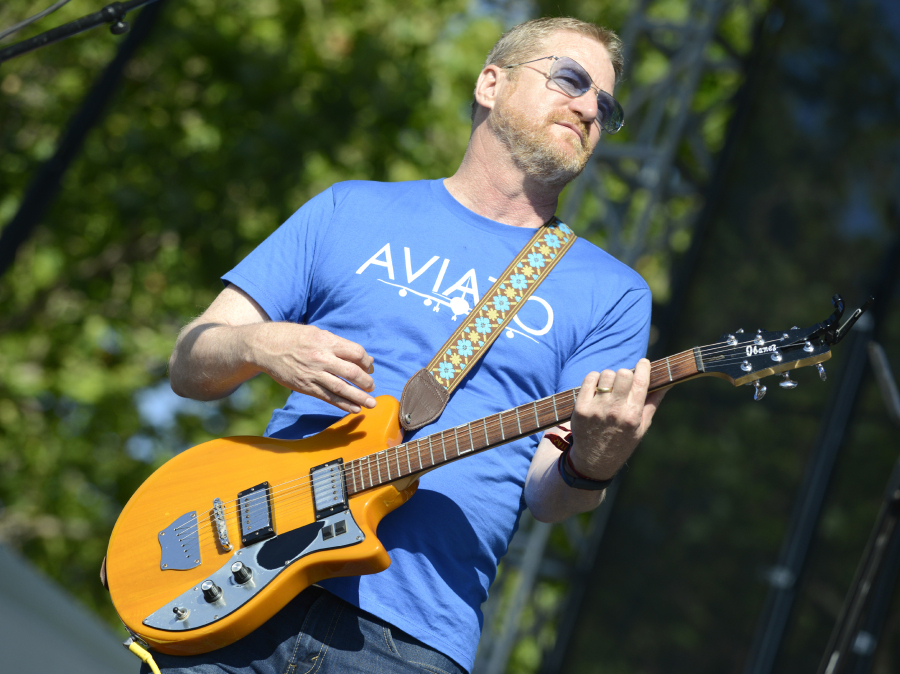Spotify, the groundbreaking streaming music service, is facing a class-action lawsuit alleging that it violates the copyrights of thousands of independent musicians.
If the songwriters prevail it could cost Spotify tens of millions of dollars in unpaid royalties. And according to experts in the music industry, this may be only the beginning, because other streaming services reportedly commit the same violations.
The named plaintiff in the lawsuit, filed on Monday in the U.S. District Court for the Central District of California, is David Lowery, an outspoken musicians’ rights advocate and frontman of rock bands Camper Van Beethoven and Cracker. He says his songs have been streamed hundreds of thousands of times without his permission.
Lowery, who also teaches music business at the University of Georgia, alleges that Spotify streams his songs without getting licenses from him to do it or paying him accordingly.
In a statement, Spotify says it has tried to find rights holders, but “the data necessary to confirm the appropriate rights holders is often missing, wrong or incomplete.” Spotify says it has set aside a fund to pay songwriters when they are identified. Earlier this month, it announced that it would invest in “a comprehensive publishing administration system” to better track royalty information.
“The point is not that they didn’t set aside royalties; the point is that they never got the licenses in the first place,” Lowery tells NPR. “There appears to be no licenses on my songs and a great number of songwriters’ songs. Setting aside the royalty, what is that royalty based on? There’s no license.”
Lowery’s lawyer, Sanford Michelman, says Spotify may owe tens of millions of dollars not just in unpaid royalties but also for copyright infringement, which can run as high as $150,000 per violation.
Music streaming services have been a growing and popular business, but they have faced opposition from artists including Prince, Thom Yorke, Beyonce, Taylor Swift and most recently Adele.
A major sticking point has been how these services pay the musicians for distributing their music. One study of the music business by the Berklee College of Music’s Institute for Creative Entrepreneurship suggested earlier this year that anywhere from 20 percent to 50 percent of music payments don’t make it to their rightful owners.
And as NPR’s Joel Rose has reported, the songwriters often get a far smaller share of those payments:
“The way those royalties are split is far from equal, in part because there are two different types of copyright holders for every song a streaming service plays. One is the owner of the sound recording — that’s usually the artist or the record label. The other is the person (or persons) who wrote the song, or someone else to whom rights have been granted, like a music publisher.”
(Rose explained in detail the legal framework that guides the music industry in a story earlier this year.)
Here’s a bit of background on Lowery’s case from The Wrap:
“The class-action suit identifies members of the class to be anyone who owns reproduction and distribution rights of copyrighted songs that have been played by Spotify.
“Lowery has long been an advocate for artists’ interests as the music business shifts its business models. In a 2013 blog post, he recounted how online radio service Pandora paid him just $16.89 in songwriter royalties for more than 1 million spins of Cracker’s hit song ‘Low.’ ”
Lowery’s lawsuit only names Spotify and doesn’t include the major song publishers (Sony, for example, has an agreement with Spotify). But Jeff Price, CEO of publishing rights tracking company Audiam, says he has seen a similar problem at all the services, including Apple, Google and Tidal.
“This suit brings to the foreground an endemic problem that has existed since the launch of the interactive streaming music services,” Price says.
You can read the full court filing from Lowery below.
9(MDAxNzk1MDc4MDEyMTU0NTY4ODBlNmE3Yw001))


